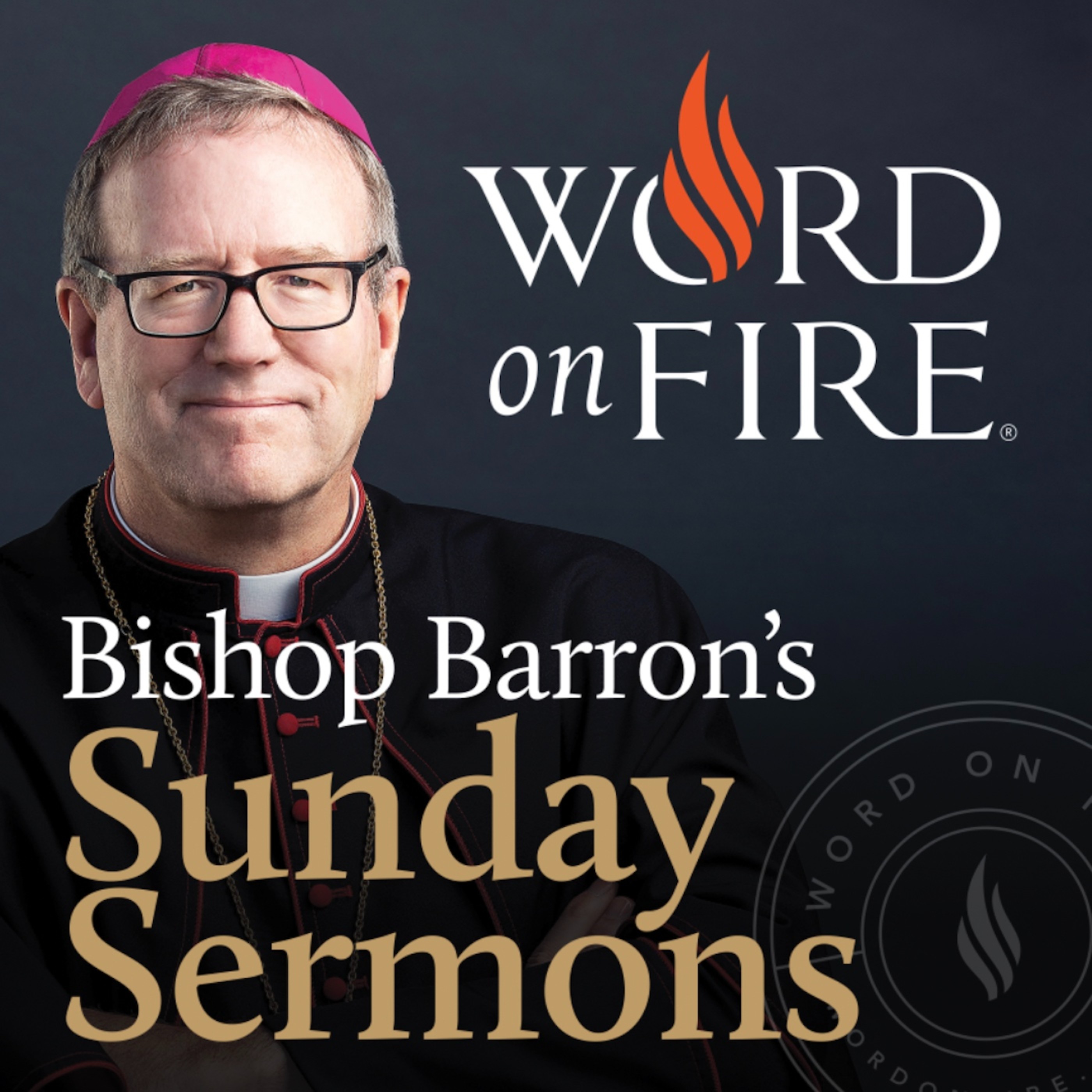

Bishop Barron’s Sunday Sermons - Catholic Preaching and Homilies
Bishop Robert Barron
A weekly homily podcast from Bishop Robert Barron, produced by Word on Fire Catholic Ministries.
Episodes
Mentioned books

Feb 26, 2006 • 15min
New Wine and New Wineskins
The new wine that Jesus speaks of is the Gospel itself, the Good News that God has joined our human condition. In order to take in such a message and to conform our lives to it, we must expand. If we remain in the narrow confines of the old self, we won't be able to handle the richness and fullness of the Gospel message. So change! Conform yourself to the love that Christ is. Become like new wineskins.

Feb 19, 2006 • 15min
Carrying Souls to Christ
In the wonderful Gospel story for today, the paralytic gets to Jesus only because there are four friends willing to carry him to the Lord. Are there people around you--friends, co-workers, family-members--who are, for various reasons, paralyzed in regard to their relationship to Christ and the Church? And are you willing to carry them? That is the evangelical question that this Gospel poses.

Feb 12, 2006 • 15min
Giving God the Glory
In our second reading, St. Paul tells us to do everything--even such simple acts as eating and drinking--for the glory of God. We should make sure that the light shines, not on us, but on God. And here's the wonderful paradox: since God needs nothing, whatever we give to him comes back magnified to us. This is why the saints shine with a special radiance, a luminosity greater than anything they could have produced on their own.

Feb 5, 2006 • 15min
The Compulsion to Evangelilze
St. Paul tells us in our second reading that preaching the Gospel is not a matter of choice for him; it is a compulsion, a necessity. In the homily for this week, I talk about St. Peter and St. Edmund Campion, two Christians who, 15 centuries apart, felt that same pressing obligation to proclaim Jesus Christ. Do we have it?

Jan 29, 2006 • 15min
The Distinct Authority of Jesus
Another homily from Fr. Robert Barron and Word on Fire Catholic Ministries.

Jan 22, 2006 • 15min
Detachment Again
The familiar theme of detachment runs right through all three of our readings for this week. Paul tells the Corinthians who are married to carry on as though they were not married and those who buy and sell as though they were not buying and selling. The point is that one should orient one's life totally to the absolute good who is God. When that orientation takes place, everything else—from spouses to material goods—can be let go, can be seen in proper spiritual perspective. This detachment is, I argue, the conversion that Jesus speaks of in his inaugural address, which is our Gospel for today.

Jan 8, 2006 • 15min
Christ and the Nations
Jesus Christ is God's love made flesh, a gift to all the nations. As such, he transcends the disputes and squabbles that so often characterize the relationship between nations, cultures, and peoples. This boundary-transcending quality of Christ is expressed beautifully in the story of the journey of the Magi.

Jan 1, 2006 • 15min
Haste, Astonishment, and Treasuring
There are three words that jump out at me from our Gospel reading for today's feast: "haste," "astonished" and "treasured." Each one says something important about the spiritual life. When we know what God wants for us, we should act without hesitation; we should "go in haste." When God breaks into our natural world, we should be astonished. And then, like Mary, we should learn to treasure God's revelation in our minds and hearts.

Dec 25, 2005 • 15min
A Baby Born in Straw Poverty
Recently, I read an interview with Bono, the lead singer of the group U2. Asked about his religious beliefs, he replied, "I think that there is a love and a logic that lies behind the universe. So I believe in God. I also see, as an artist, the poetic appropriateness of that unspeakable power manifesting itself as a baby born in straw poverty. And that's why I'm a Christian." My sermon for today is just an elaboration of Bono's wonderful Christmas sermon.

Dec 18, 2005 • 15min
David and Mary
For the fourth Sunday of Advent, the Church asks us to juxtapose stories of David and Mary. David decides that he wants to build a temple for the Lord, but God does not favor his plan; Mary hears what God wants to do through her, and she acquiesces. It is always a matter of following the promptings of the divine will and not our own desires, even when we are convinced that those desires are good and holy. Thomas Merton said, "Lord, the fact that I think I'm following your will doesn't mean that I am in fact doing so..." That acknowledgement takes great humility and spiritual perception.


